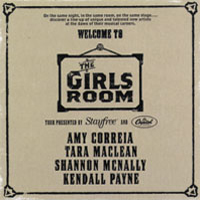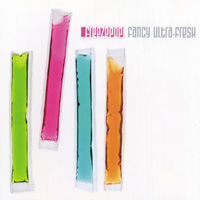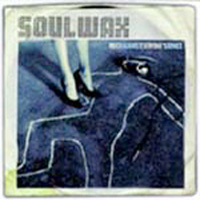 Welcome To The Girls Room
Welcome To The Girls Room
(Capitol)
by Jamie Kiffel
If The Pleides could sing sisterly defiance to a full moon, this would be it. Their starry blood would pulse with sympathetic pleasure to these singers’ scorned and strengthened voices. Welcome to the Girls Room is filled with self-reliant, sometimes bottom-of-your-shoe feminist stuff with strong folk melodies and rock beats. And it’s sponsored by Stayfree.
Hear Tori Amos’ exquisite body slashes sugared like Lisa Loeb as Tara Maclean sings, “sweet little fire, sweet little scar,” an ode to strength grown from pain. Kendall Payne sings her catchy annoyance about supermodels, and announces how tired she is of being compared. “The boys, they come with expectations for the summer/ I refuse to take any part of this barbaric ritual,” she sings with Ani DiFranco’s hard “r’s” over chunky, edgy electric guitars. The sentiment is collegiate, but the tune is strong.
Shannon McNally evokes Hudson River folk singer Sloan Wainright’s bluesy, smoky voice with her torch song about a woman who loves a runaround. The theme doesn’t seem to match the album’s womanpower, but McNally’s loosely structured, soulful alto is worth hearing. Amy Correia‘s voice is a bit powdery, but “Fallen Out of Love” is an empowering celebration of a breakup, a theme rarely broached by female singers. “When it feels like a sickness… it’s not real love, and it never will be… Love, when it’s real, it doesn’t make you feel like you’re no good,” she announces, concluding, “Thank Heaven, I’ve fallen out of love.” The tune waxes 1954 cruiseline toward the bridge, but it works as a comment on thin, false romance, and serves to break up the melodrama.
Maclean’s “Divided” is a smart follow-up, a slow, jazzy meditation on being single. “I’m checkin’ out the scenery from as high as I can be,” Maclean sings, letting the words slide toward each other like a smooth dance. Payne matches her with an anthem of independence, “Closer to Myself.” Again drawing on Ani DiFranco, but touched by Shania Twain’s twang and Tori Amos’ brain, she belts, “I’ve been everybody else, now I wanna be something closer to myself.” McNally gets even more bluesy in “Now that I Know,” a slow, sappy shuffle about love. Again, the song seems out of place, but it does add variety. Correia winds down the disc on a bizarre note, something like Macy Gray meeting Rasputina’s fuzzed out cellos, yearning for a fly-away love who now only appears in fleeting moments of peripheral vision. The disc as a whole is a worthwhile meditation on young feminism, and instead of hammering down the pigs (men), it pounds out a healthy message of strength. This is not the sexualization of the snarling woman. It is woman singing to herself, a collection of love songs to win her own heart.
www.hollywoodandvine.com



